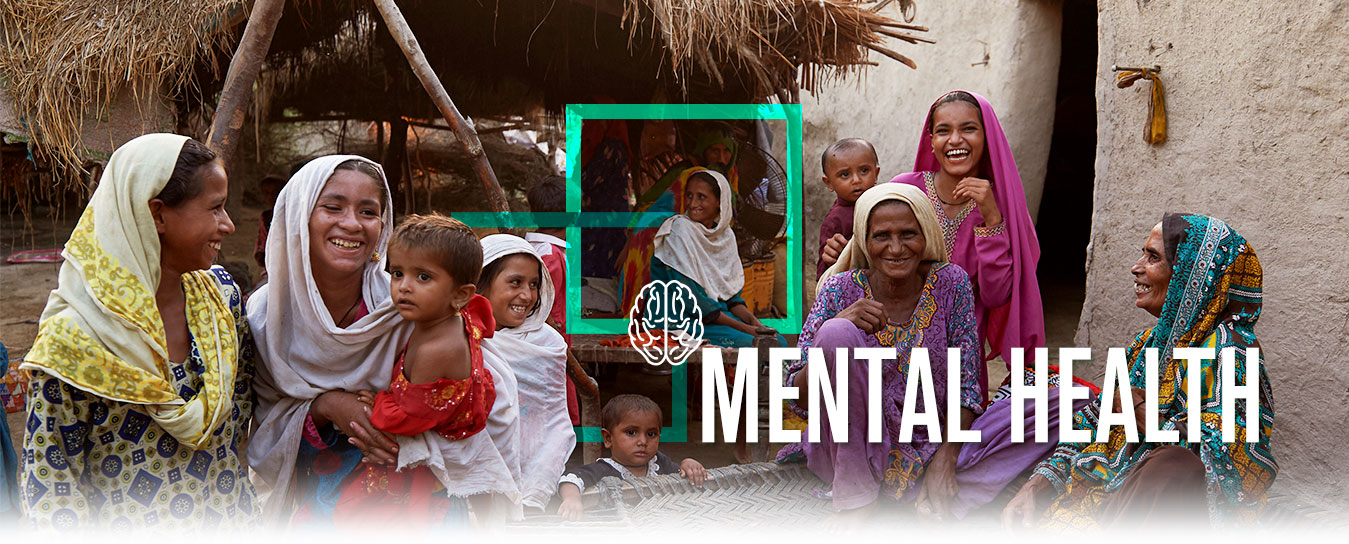
1
2
3
4
5
6
7
8
9
10
Burden of Tuberculosis (TB) has shown that mental health comorbidity can adversely impact treatment adherence and lead to poorer health outcomes.3
Tuberculosis (TB) is considered to be amongst the top ten income countries, with Pakistan as the 5th highest TB burden country in the world. 1
TB has a high level of comorbidity with mental health disorders such as depression and anxiety.2
Supported by the Harvard Medical School- Center for Global Health Delivery (Dubai), Pursukoon Zindagi conducted a study to evaluate a reliable model for mental health integration within TB treatment programs.
The research study established integrated practice units (IPUs) for mental health within existing TB treatment facilities in Karachi, Pakistan. Mental health screening was conducted while patients received TB care, and was open to all drug-susceptible TB (DS-TB) patients seeking treatment at the facility.
Any patient who was symptomatic for depression or anxiety was offered a mental health intervention of 4-6 counselling sessions.
The IPU used a task shifting approach, using lay health counselors. Lay health counselors, or community health workers, were recruited and participated in an 8-day training on basic counselling, enabling them to provide first-line screening and counselling services.
Patients were assessed for depression and anxiety in the beginning at IPUs and after receiving mental health support to measure efficacy in reducing symptoms of depression and anxiety.
Treatment completion levels were also compared between symptomatic individuals who completed the intervention and those that did not to evaluate whether the intervention helped to improve treatment completion for those with symptoms of comorbid depression/anxiety and TB.
Between February 2017 – June 2018 we established six integrated practice units (IPUs) across different provider settings in Karachi, Pakistan (private and public tertiary care hospitals and private diagnostic and treatment centers).
Through the IPUs we screened 3,500 DS-TB patients for depression and anxiety. 30% (N=1057) of the study cohort was found to be symptomatic and offered the mental health intervention. 1,012 were enrolled into the study – 535 individuals went on to complete the mental health intervention (≥ 4 counselling sessions), while the rest received a partial mental health intervention (<4 counselling sessions).
Our results found that study participants who completed the mental health intervention had a higher level of TB treatment completion than those who did not complete the intervention (92% vs 75%).
This increase in treatment completion is significant – given the high levels of comorbidity between depression and anxiety and TB, it creates a strong argument for mental health integration as a routine part of TB care.
References:
[1] World Health Organization, Global Tuberculosis Report. Geneva: World Health Organization. 2020
[2] Sweetland AC, Kritski A, Oquendo MA, Sublette ME, Norcini Pala A, Silva LR, Karpati A, Silva EC, Moraes MO, Silva JR, Wainberg ML. Addressing the tuberculosis–depression syndemic to end the tuberculosis epidemic. The International Journal of Tuberculosis and Lung Disease. 2017 Aug 1;21(8):852-61.
[3] Peddireddy V. Quality of life, psychological interventions and treatment outcome in tuberculosis patients: the indian scenario. Frontiers in psychology. 2016 Oct 27;7:1664.
